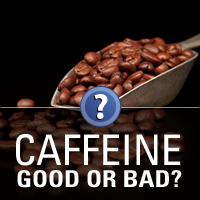Caffeine is one of the most widely consumed psychoactive substances in the world, cherished for its ability to enhance alertness and energy. Classified as a stimulant, caffeine is present in everyday favorites like coffee, tea, chocolate, and energy drinks. For athletes, caffeine is more than just a morning pick-me-up—it’s an ergogenic aid that can significantly improve physical and mental performance. But like any powerful tool, caffeine’s impact depends on how it’s used, raising the question: is it a performance booster or a potential liability?
How Caffeine Enhances Performance
The benefits of caffeine for athletes are well-documented, particularly in endurance sports. By stimulating the central nervous system, caffeine reduces perceived exertion, allowing athletes to train harder and for longer periods. Additionally, caffeine mobilizes fatty acids from fat stores, enabling muscles to use fat as a fuel source and conserve glycogen, the body’s primary energy reserve. This dual action makes caffeine especially valuable for marathoners, cyclists, and triathletes looking to optimize energy use during prolonged exercise.
Beyond endurance, caffeine also enhances performance in high-intensity activities by improving muscle contraction. Studies suggest that caffeine increases calcium ion availability within muscle fibers, resulting in more forceful contractions. This mechanism is particularly beneficial for sprinters, weightlifters, and athletes requiring explosive power. Coupled with its ability to improve focus and reaction time, caffeine’s physical and mental benefits make it a versatile performance enhancer across a variety of sports disciplines.
Risks and Drawbacks of Caffeine
While caffeine offers undeniable advantages, its use is not without risks. Excessive consumption can lead to jitteriness, increased heart rate, and gastrointestinal discomfort—symptoms that are particularly concerning during high-pressure competitions. For athletes relying on precise movements, such as gymnasts or archers, these side effects may outweigh the benefits. Furthermore, caffeine is a diuretic, potentially increasing the risk of dehydration during long workouts or events in hot climates. Staying hydrated and managing dosage are critical to mitigating these risks.
Caffeine dependency is another potential issue, with regular consumption as low as 100mg per day capable of establishing a dependency. Withdrawal symptoms, including headaches, fatigue, and difficulty concentrating, can disrupt training schedules and impair recovery. Additionally, for pregnant athletes, high caffeine intake has been linked to increased risks of miscarriage and delayed conception, emphasizing the need for cautious consumption tailored to individual circumstances.
Optimal Usage for Athletic Gains
To maximize caffeine’s benefits while minimizing risks, athletes should adhere to evidence-based guidelines. Research suggests that consuming 3-6mg of caffeine per kilogram of body weight 30-60 minutes before exercise provides optimal results. Timing is crucial, as caffeine reaches peak blood levels approximately one hour after ingestion. For morning training sessions, consuming caffeine immediately upon waking ensures it aligns with workout intensity, enhancing endurance and focus without disrupting recovery later in the day.
Rotating caffeine use, such as reserving it for key training sessions or competitions, prevents tolerance buildup and maintains its effectiveness. Incorporating caffeine-free days also reduces dependency and allows the body to reset its natural energy cycles. Athletes should also monitor their individual responses, as caffeine sensitivity varies widely. While some benefit from small doses, others may require more to experience significant effects, making personalized experimentation essential.
Caffeine’s Role Beyond Performance
Caffeine’s impact extends beyond physical performance, offering psychological benefits that can enhance an athlete’s overall experience. By reducing perceived fatigue, caffeine enables athletes to push through mental barriers, fostering resilience and confidence. This psychological edge is invaluable in competitive settings, where focus and determination often determine outcomes. Moreover, caffeine’s role in alleviating headaches and improving mood contributes to a positive training environment, enhancing long-term adherence to fitness goals.
In medical contexts, caffeine’s benefits are equally noteworthy. For premature infants, caffeine therapy treats apnea of prematurity, a condition where breathing temporarily stops. Its bronchodilatory effects alleviate asthma symptoms, while its vasoconstrictive properties reduce migraine severity. These applications underscore caffeine’s versatility, making it a valuable tool in both athletic and healthcare settings.
Balancing the Equation
Achieving the right balance between caffeine’s benefits and risks requires a nuanced approach. Athletes should integrate caffeine into a broader nutrition and hydration strategy, ensuring it complements rather than complicates their performance goals. Staying informed about the latest research and consulting with sports nutritionists can provide valuable insights, enabling athletes to tailor their caffeine use to their unique needs and objectives. With thoughtful planning, caffeine can be a powerful ally in achieving peak performance.












